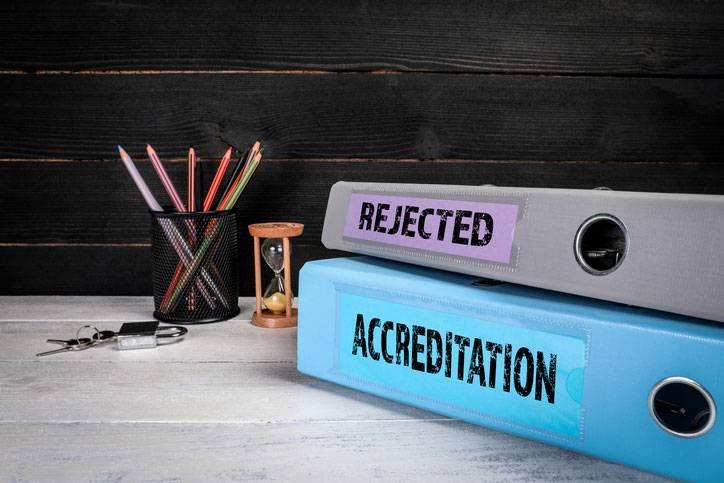Created by Illinois Social work EDU Contributing Writer

The Council on Social Work Education (CSWE) considers field education the signature pedagogy for social work.
The 2022 Educational Policy and Accreditation Standards (EPAS) documents the official standards for social work master’s programs, regardless of a programs mode of delivery and specialized tracks.
As the national accrediting body of social work programs, the CSWE ensures that MSW programs meet the CSWE accreditation criteria by requiring field agencies to enter into affiliation agreements with the school or program that hold field instructors to the established standards.
What Is Field Education?
Field education — also called field instruction, practicums, internships, and field work — refers to the hands-on learning activities that MSW students perform under the supervision of professional social work practitioners.
The practical application of social work theories and models is a key component of all accredited MSW programs in Illinois and throughout the United States, whether the program focuses on the micro, mezzo, or macro level of practice.
The Three Levels of Social Work
- Micro Social Work: Micro social workers implement direct-practice interventions for individuals and families, supporting them emotionally and socially.
- Mezzo Social Work: Mezzo social workers practice involves local initiatives designed to improve Illinois communities.
- Macro Social Work: The focus of macro-level social work is on local, state, national, and international policy reform, research, and advocacy.
MSW students may be placed in agencies at any level.
Educational Policy and Accreditation Standards for MSW Field Instruction
The CSWE’s Educational Policy and Accreditation Standards outlines the purpose of field education in social work master’s programs, which allows MSW students to apply social work research and theory in a real-world setting while under the supervision of experienced professionals.
MSW students demonstrate their mastery of the nine social work competencies of generalist practice. If they’re completing a program with a concentration, such as child welfare or mental health, their field placement also emphasizes their knowledge and skill within the specialization and system level — individuals, families, groups, organizations, communities.
Qualified Field Instructors and Agencies
Regardless of whether the program is a full-time, part-time, or one-year advanced standing MSW program, field instructors must hold a master’s degree in social work from a CSWE-accredited program.
All MSW follow the EPAS guidelines that state, “master’s students [must] receive field supervision from an individual who has at least two years of post-master’s social work degree practice experience in social work.”
Whether government entities, nonprofit organizations, or public service departments, field agencies supplement student coursework by offering opportunities for them to serve clients in a real-world setting.
Field agency partners are responsible for:
- Ensuring that the field instructor meets the CSWE requirements.
- Allowing time for student orientation, clinical instruction, and administrative supervision
- Providing students with learning opportunities that align with the program’s learning outcomes
- Collaborating with faculty on instruction and assessment
Assessment tools must be based in “real or simulated demonstration of student achievement in field education.”

The Educational Policy and Accreditation Standards stipulates that master’s students in every type of MSW program must complete 900 hours of field education with an approved social agency.
Illinois MSW programs adhere to these requirements as well as the National Association of Social Workers (NASW) code of ethics in the design and delivery of field education.
University of Illinois at Urbana-Champaign
Students practice with organization that align with their concentration areas in a block placement model. This unique placement approach allows students to focus fully on their internship in a full-time capacity after they’ve completed all program coursework.
First-year MSW students complete 480 hours of field work during fall and spring semesters. Second-year students complete 600 hours of field work in their specialization and provide direct-practice and clinical social work services to their chosen population.
Dominican University’s School of Social Work is affiliated with more than 300 agencies in Cook and Lake counties and nearby communities. Students in Illinois, Indiana, Michigan, Wisconsin, and Iowa can complete their field education hours over two years, with 400 to 480 hours of generalist practice in year one and 500 to 600 hours of advanced generalist practice in year two. Placements align with the following program tracks: aging, adulthood and gerontology; children, youth and family; global social work practice for immigrants and refugees; health and well-being; military; school social work.
University of Illinois Chicago
The Jane Addams College of Social Work partners with upward of 300 agencies, schools, and organizations throughout Chicagoland. Field liaisons guide students through their field work each year to ensure success. Full-time students in the first year of the program (generalist education) must complete a minimum of 450 field instruction hours for the academic year, and full-time students in the second year of the program (specialist education) must complete 630 hours for the year.
MSW students complete two internships in tandem with their academic coursework. They complete one generalist placement that includes 540 contact hours in a pre-approved social agency and one internship that focuses on either forensic social work or community practice for minimum of 580 contact hours in a pre-approved social agency.
UC’s Crown Family School works with more than 600 agencies and programs throughout the Chicago area, where MSW students practice delivering ethical social work services to Illinoisans in disadvantaged communities. The first field placement (480 hours) enhances the core curriculum, and second year field placements align with either the clinical practice concentration (640 hours) or the social administration concentration (496 hours).
Southern Illinois University Carbondale
The concurrent field practicum model at SIUC requires first year students to complete 360 field practicum hours a week and second-year students to complete 607 field practicum hours a week during the fall and spring semesters. Field students must also attend a weekly integrative seminar.
Students must complete a minimum of 450 hours of generalist-level field experience over two consecutive semesters in the first year and 600 hours of specialization field experience over two consecutive semesters. Students in the addictions track complete their field work in an approved substance use disorder treatment site. School social work track students complete their field hours in a school setting. Students in the child welfare track complete their internship hours in case management, shelter care services, intact family services, foster care, adoption, and therapeutic foster care services.

Students in Chicago State University’s MSW program practice their social work skills in field settings that promote the well-being of oppressed and marginalized individuals and groups, from child welfare agencies and rehabilitation facilities to hospitals and schools. Students are supervised by licensed social workers and work under the guidance of faculty field liaisons as they complete 400 hours of foundational field work and 550 hours of advanced field work. Both run two semesters. Students in the school social work concentration need a minimum of 600 field work hours.
Illinois State University MSW students benefit from field placements in settings for generalist and specialist social work practitioners. Generalist placements comprise 400 field education hours during the summer semester, whereas specialist placements consist of 350 hours per semester for a total of 700 hours of field work.
Southern Illinois University Edwardsville
SIUE offers field placements throughout urban and rural areas of Illinois and Missouri in mental health agencies, hospitals, community organizations, and nonprofit agencies, among others. MSW students can complete their practicum over consecutive spring and summer semesters or as a block option during the summer term.
Field Education and Social Work Jobs in Illinois
Field education is experience, and experience is a factor in breaking into the social work field.
Job titles for social workers who hold MSW degrees include:
- Licensed Clinical Social Worker (LCSW)
- School Social Worker
- Executive Director (or other leadership title)
- Program Manager
- Policy Analyst
- Substance Abuse Counselor
- Social Services Specialist
- Medical Social Worker
The Fitzhugh Mullan Institute for Health Workforce Equity at The George Washington University released a 2020 report of findings from new social worker surveys conducted from 2017 to 2019.
The report, which was prepared for the Council on Social Work Education and the National Association of Social Workers, revealed that more than 80% of new social work graduates who had searched for a job had secured a job or received a job offer by the September after spring graduation. More than a third of newly employed social workers had secured a job through one of their field placements.
These findings suggest that field education plays a significant role in social worker employment. And with the social work field projected to grow at a faster rate than the average for all other jobs over the next decade, your field placement could be the key to a rewarding career in Illinois.






